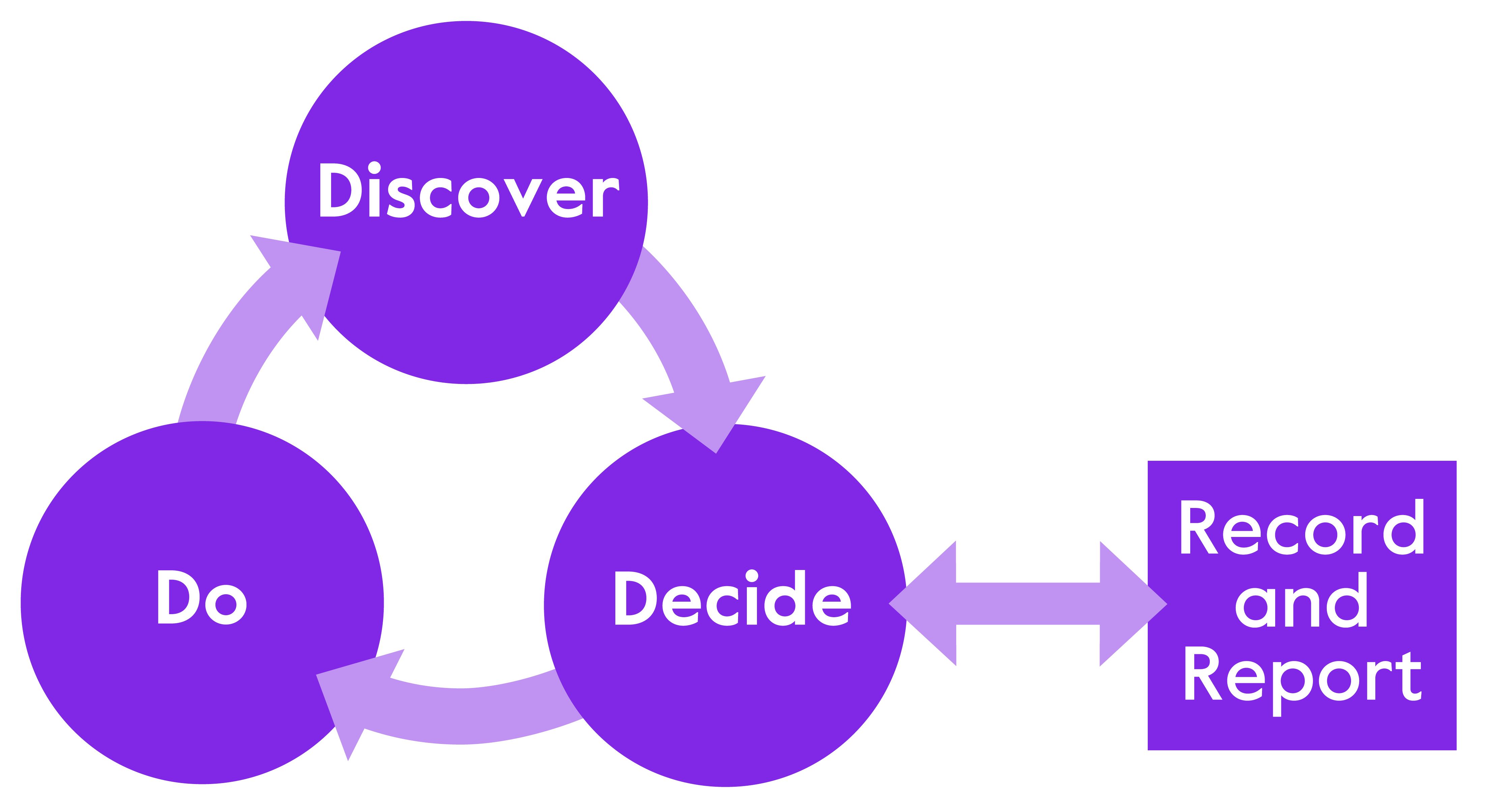Case studies
These case studies illustrate assessment in Cambridge Early Years. In each one you can see how the principles of Discover, Decide, Do, Record and Report apply in different situations.

Case Study 2 - A new sister (4 year old)
Kevin is 4 years old. His parents have spent a lot of time preparing him for the arrival of his new sister. Now she is born, Kevin has responded in an unexpected way.
Stage
|
Assessment Example
|

|
Information gained from parents:
When his parents speak to him, Kevin says he is happy to have a sister, but his behaviour has changed at home. He has become tearful and is acting in ways which are out of character (throwing tantrums to get attention, refusing to interact
with the baby, refusing to smile in photographs with the baby). When his parents give him the opportunity to take on big brother responsibilities, he is disinterested and occupies himself in what he is interested in (normally some
sort of construction activity). The parents are concerned.
At the early years centre:
You have tried to talk to Kevin about the changes at home, but he becomes silent and runs away. He is happy to talk about other topics, such as what he is doing and cars.
|

|
Kevin is finding sharing his parents with a new sibling very challenging and it has unsettled him. Previously he has been the centre of his parents’ attention and although his routines have not changed, he senses that his new sister has
to be prioritised because she is a baby. He sees the attention his sister is getting from both his parents and wider members of the family who visit to see her. In the early years setting he needs support to talk about and manage his
feelings and behaviour.
You look at the learning statements for EY1 Personal, Social and Emotional Development and see several that are relevant to Kevin’s situation, for example:
- 1PS.06 Reflect on their activities and experiences, saying what they liked and disliked.
- 1PS.12 Take pride in carrying out a task, especially when asked to do so by an adult.
- 1PS.17 Be aware of their own feelings and rights, describing these to an adult.
- 1PS.18 Show recognition that actions and words can affect others’ feelings positively and negatively, for example, comforting a peer when they realise they have upset them.
- 1PS.19 Accept that personal needs may not be met immediately, and that individual wishes may not always be met.
- 1PS.20 Begin to accept the needs of others, including by taking turns and sharing space and resources.
|

|
There are many possible next steps which could support Kevin in his Personal, Social and Emotional Development in the setting.
- Buddy Kevin with a friend who also has younger siblings. Encourage them to talk about being an older sibling.
- Provide opportunities for Kevin to express how he feels to an adult or through creative activities, e.g. drawing.
- Select and include stories about the arrival of new siblings in story time. Ask the children questions about the feelings that happen when a new baby arrives.
- Have conversations with Kevin, assuring him that when things change in the family it can sometimes feel confusing.
- Provide props to support role play about home life and looking after babies. Observe how Kevin engages with the play with peers and adults.
- Set up activities where a group of children have to take equal responsibilities to share time and responsibilities, e.g. establishing a game with clear rules for outdoor equipment which relies on each group member making contributions
for all to succeed. This encourages the taking of responsibilities. An adult observes and interacts to encourage equal responsibility and how everyone is important to the group (like in a family).
- Provide opportunities for Kevin to have some time in a quiet space with an adult or a friend when needed (a busy classroom or play area can be overwhelming for a child who is struggling emotionally).
- Maintain routines to help Kevin feel safe and secure.
|

|
During the period, maintain regular contact with Kevin’s parents (e.g. by talking to them when they come to collect him), understanding that this is a challenging time for the whole family as they adjust to the new
baby’s arrival. Explain to his parents what you are doing in the setting to help him and suggest that they try some of the same ideas at home (e.g. ensuring he has some time with them without the baby so that he gets their undivided attention).
Aim to track changes in Kevin’s behaviour, attitude and temperament and to celebrate successes together.
|




